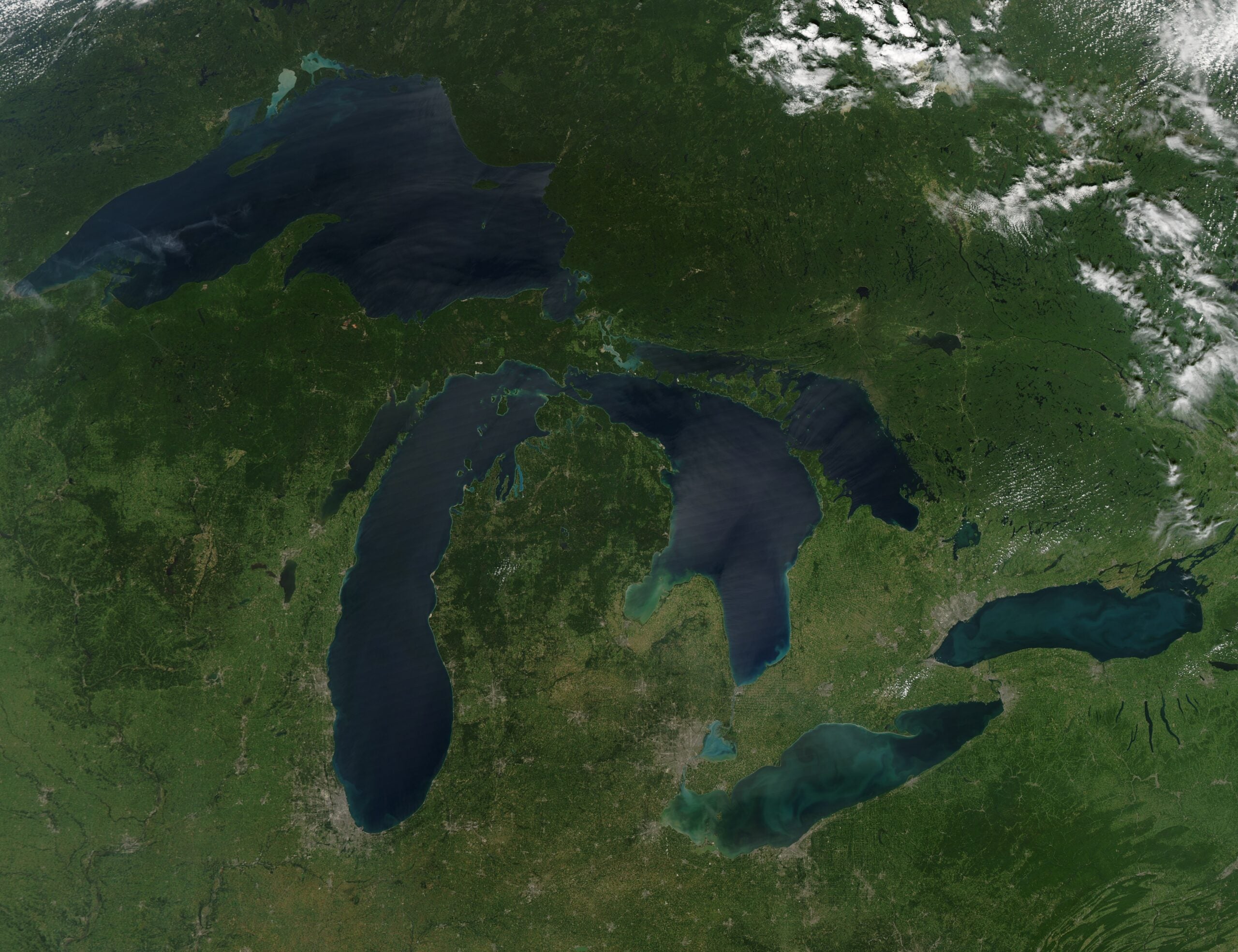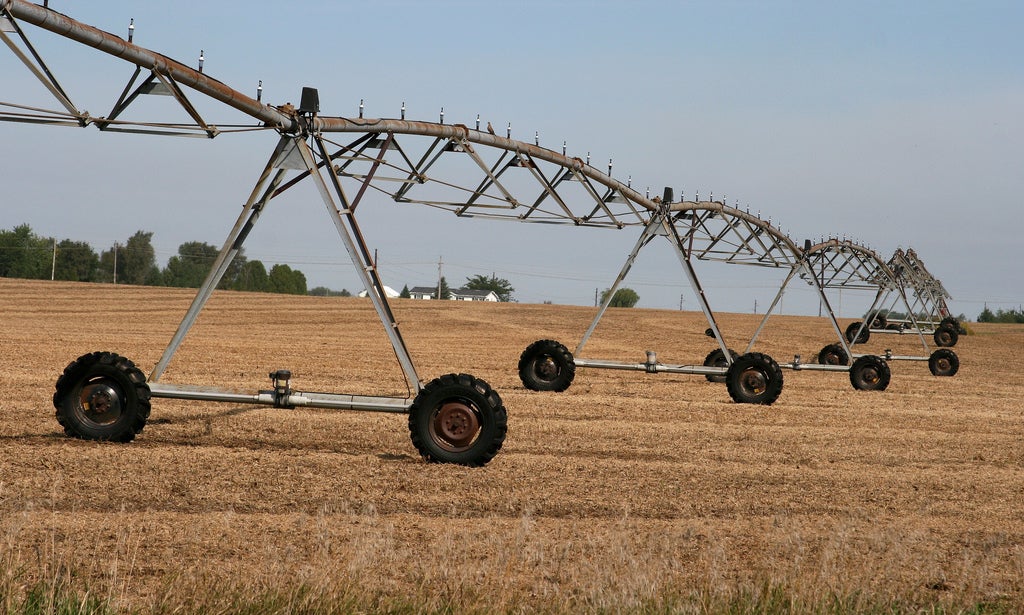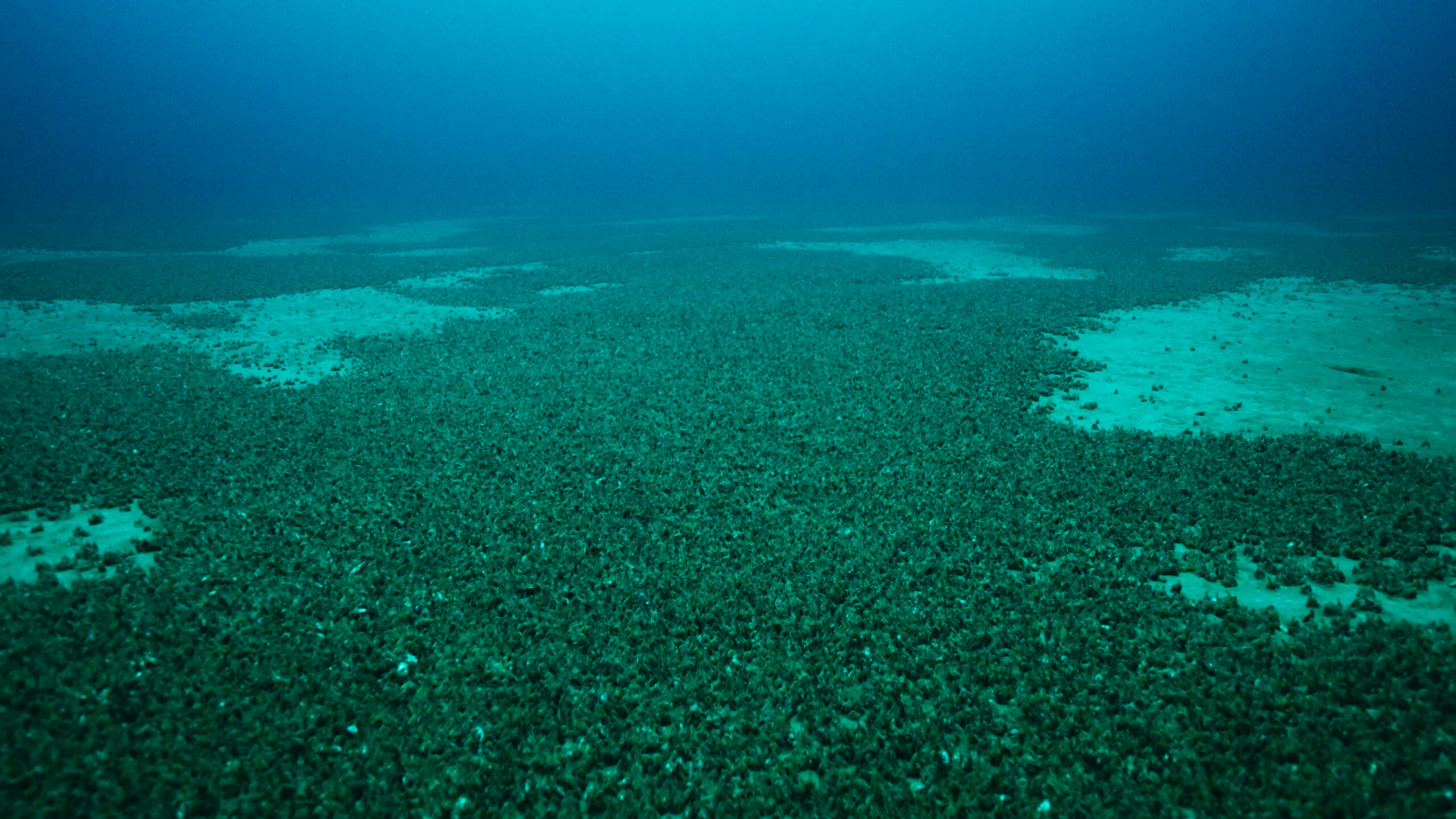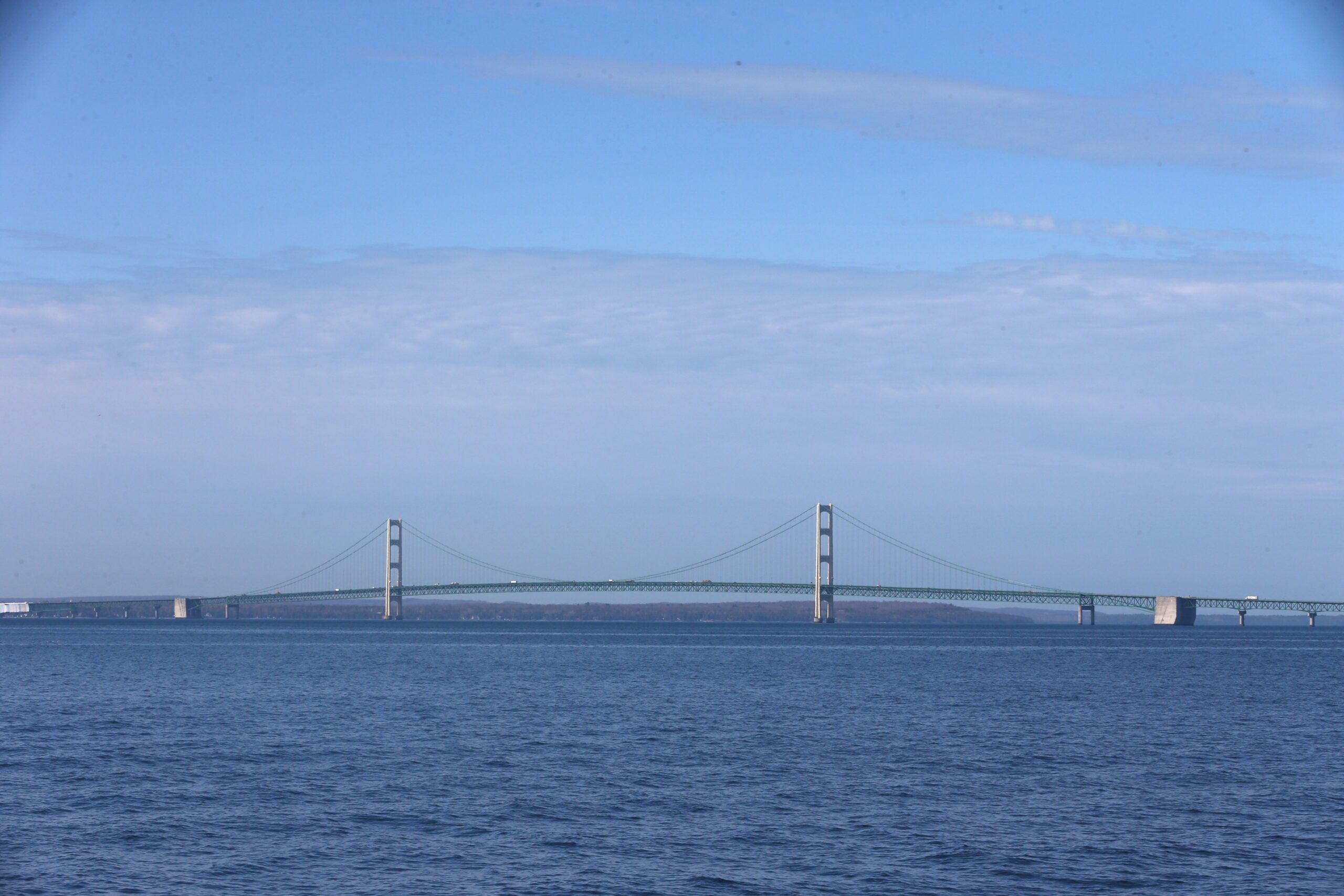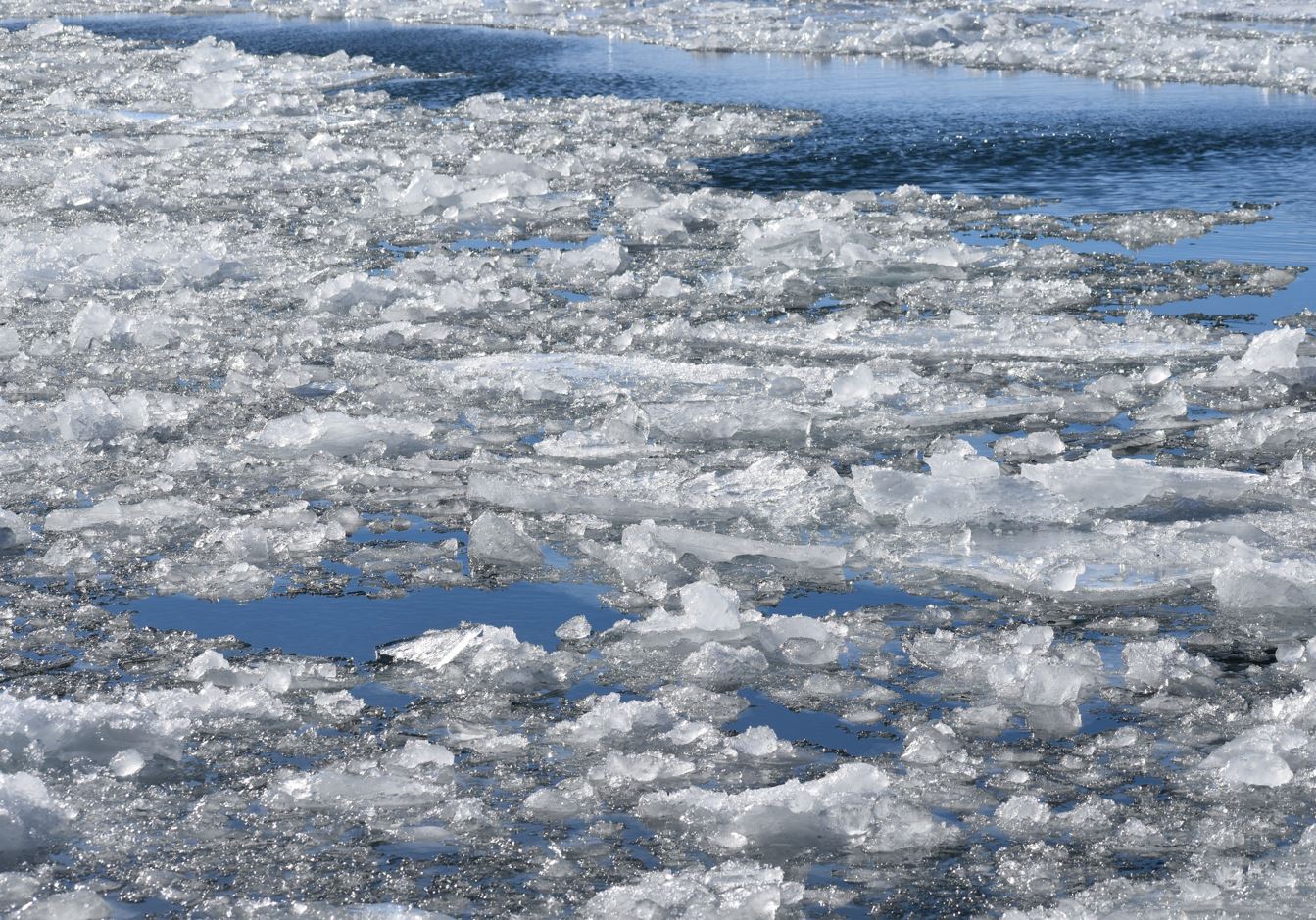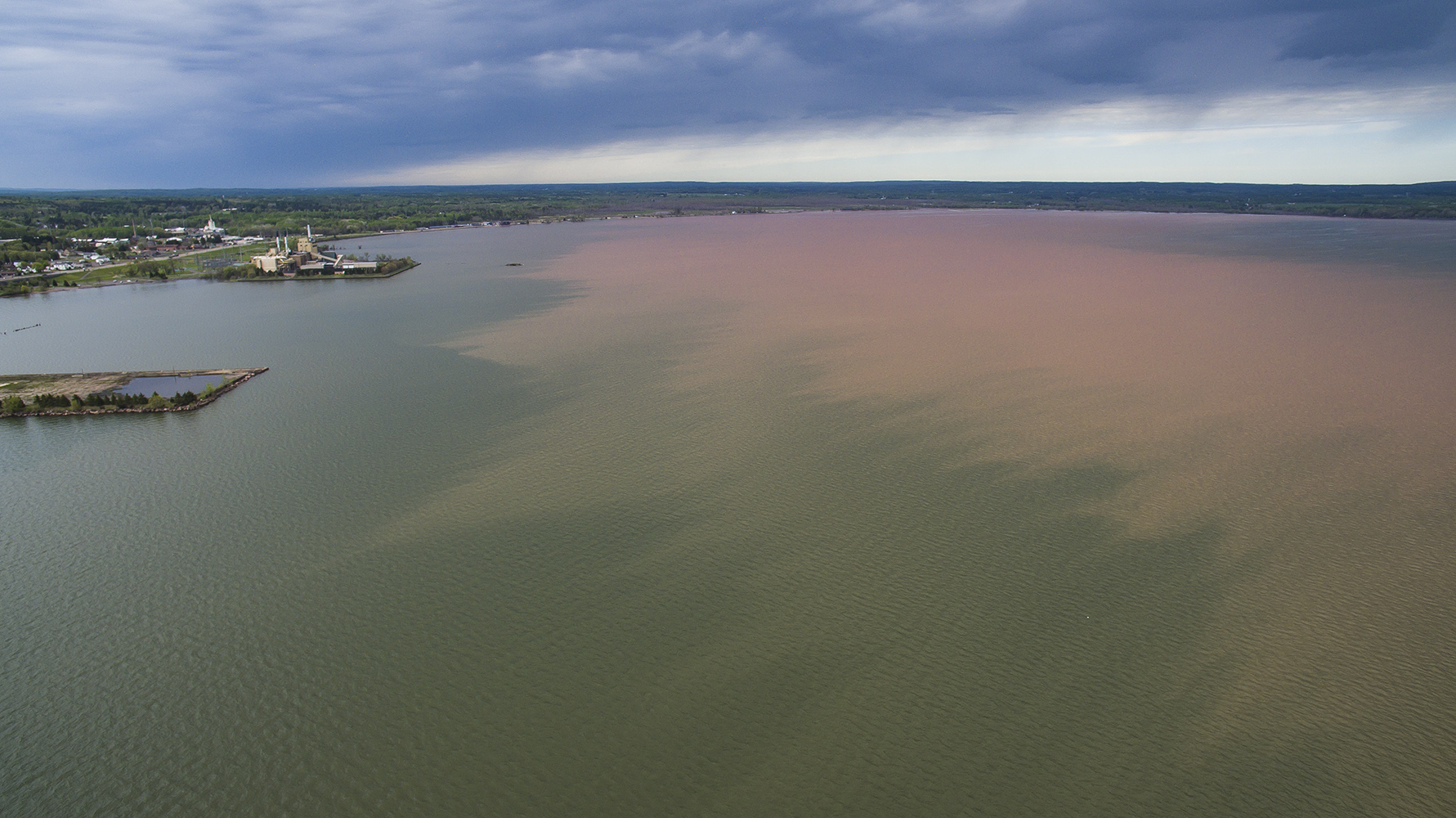Water levels are expected to be near or above record highs on most of the Great Lakes over the next six months, with several lakes already at record levels.
Deanna Apps, physical scientist for the Detroit District of the U.S. Army Corps of Engineers, said Lakes Michigan, Huron and Erie set new records for May water levels, with above-normal rainfall recorded last month.
She said levels on Lakes Michigan and Huron, which the Corps of Engineers measures together, dropped about half as much as they usually do between late fall and early winter — and as a result, the lakes have set water level records every month since January.
Stay informed on the latest news
Sign up for WPR’s email newsletter.
“We continue to see high waters, especially on some of the upper lakes — Lake Superior through Lake Erie. Very close to or above record highs on some of those lakes,” said Apps. “It’s shown in our forecast to continue over the next six months.”
Lakes Michigan and Huron rose 3 inches in May to 581.96 feet, surpassing the previous record for the month set in 1986.
Both Lakes Erie and St. Clair, the latter of which lies between Ontario and Michigan, surpassed a record set last year. Lake Erie has records each month since February, with a 574.41 foot water level in May. Lake St. Clair rose to 577.36 feet in May.
Lakes Superior and Ontario were both down in May compared to the same time last year. Lake Superior fell 5 inches to 602.49 feet, while Lake Ontario fell 13 inches to 247.24 ft.
Apps noted water levels on Lake Ontario are still expected to be above average for the next six months, although levels on the lake are not expected to be as close to the record highs seen on the other lakes.
High water levels on Lake Ontario caused severe flooding and millions of dollars in damage along shoreline communities last year, sparking outrage among residents and with New York Gov. Andrew Cuomo. He announced last fall that the state was suing the International Joint Commission, which oversees outflows established by the International Lake Ontario – St. Lawrence River Board. He argued the commission failed to manage water levels there.
Apps said officials have been trying to maximize outflows from the lake as much as possible while balancing other water uses, including safe commercial navigation. She noted drier conditions in May likely prevented the lake from rising more this spring, adding that regulating outflows can only do so much to manage water levels.
“They’re not able to help control lake levels or prevent extreme high or low water levels, and we know that because we’ve seen record high water levels over the last couple of years,” said Apps.
Apps said shoreline flooding and erosion will continue on the upper lakes this summer as Lakes Superior, Michigan and Huron enter their seasonal rise.
Wisconsin Public Radio, © Copyright 2025, Board of Regents of the University of Wisconsin System and Wisconsin Educational Communications Board.
